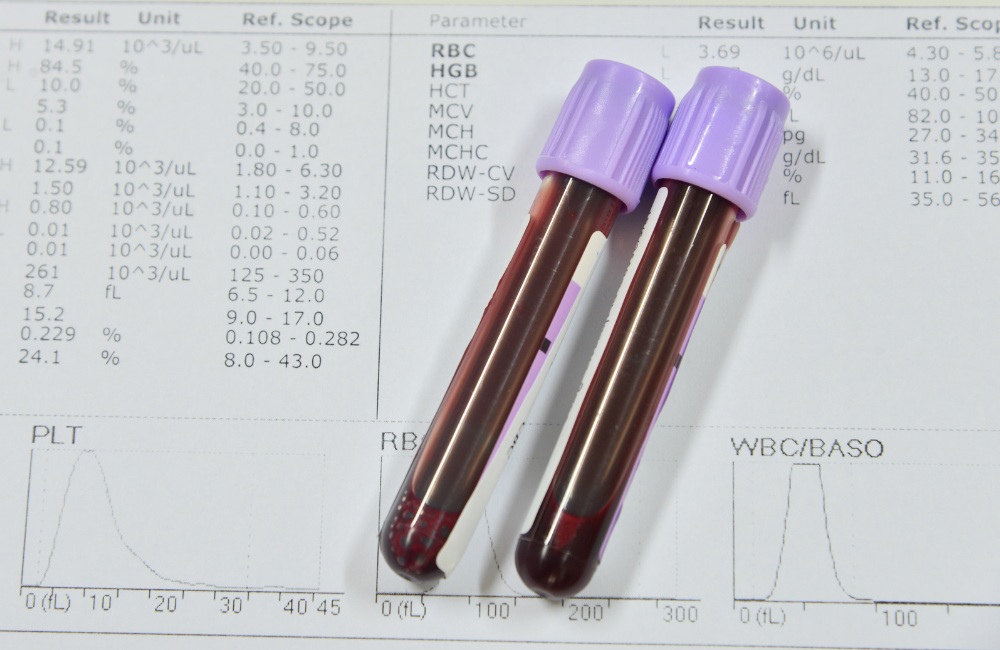Craving Control: Understanding and Overcoming Disorder

Imagine being trapped in a never-ending maze of cravings, guilt, and frustration. Picture yourself craving food even when you’re not hungry, and then battling the overwhelming urge to indulge. This is the daily reality for individuals living with overeating disorder. In this article, we’ll delve deep into the underdiscussed world of overeating disorder, unearthing its hidden symptoms and shedding light on how to deal with this complex condition. Like a detective unraveling a mystery, we’ll explore the intricacies of this disorder, guiding you through the signs, potential causes, and management strategies.
Table of Contents
ToggleThe Overeating Epidemic: A Rising Concern
Overeating disorder is no longer a niche issue; it’s an epidemic silently affecting millions worldwide. While occasional indulgences are part of life, this disorder takes it to a different level, where eating becomes an all-consuming struggle.
Overeating disorder, once considered a less common problem, has now become a global health concern. The prevalence of this disorder has risen significantly, impacting individuals across diverse age groups and backgrounds. Unlike occasional indulgences, where enjoying a slice of cake at a celebration is normal, overeating disorder presents a constant and overwhelming challenge. This article will unravel the complexities of this issue, helping you understand its widespread impact and the urgent need for awareness.
Distinguishing Overeating Disorder: Not Just Occasional Overindulgence
Let’s be clear: overeating disorder is not about that extra slice of cake at a celebration. It’s an ongoing pattern of excessive food consumption even when you’re not physically hungry. Understanding the difference is key to addressing this disorder.
Distinguishing overeating disorder from occasional overindulgence is crucial. While indulging in treats occasionally is a common part of life, overeating disorder represents an entirely different phenomenon. It entails a consistent pattern of consuming excessive amounts of food, often in the absence of genuine physical hunger. This article will shed light on the distinctions, empowering you to recognize when overeating crosses the line into a disorder.
Understanding the Mind-Body Connection: Why We Overeat
Our minds and bodies are closely connected, and for those with overeating disorder, this connection can be a source of turmoil. We’ll explore how psychological and emotional factors play a significant role in driving compulsive overeating.
The intricate link between our minds and bodies forms the battleground for individuals grappling with overeating disorder. This connection, which should harmoniously guide our eating habits, becomes a source of inner turmoil for those affected. In this section, we’ll delve deep into the psychological and emotional factors that fuel compulsive overeating. By understanding this complex interplay, we can begin to unravel the reasons behind these behaviors and work toward healthier eating habits.
Binge-Eating: The Telltale Sign
Binge-eating episodes are a hallmark of overeating disorder. These are episodes where a person consumes a large amount of food in a short period, often with a feeling of loss of control. It’s crucial to recognize this key symptom.
Binge-eating is a clear and telling symptom of overeating disorder. These episodes involve consuming an excessive quantity of food within a short time frame, often accompanied by a profound sense of losing control. Recognizing these episodes is vital, as they serve as a crucial indicator of the disorder. In this section, we’ll explore the nature of binge-eating, its impact on individuals’ lives, and the necessity of addressing it in the quest for recovery.
Constant Cravings and Emotional Eating
Cravings for food, even when not hungry, are a common experience for individuals with overeating disorder. These cravings often stem from emotional triggers like stress, sadness, or boredom. We’ll delve into how these cravings become a daily battle.
Cravings that persist even in the absence of physical hunger are a daily battle for those with overeating disorder. Emotional triggers, such as stress, sadness, or boredom, often ignite these cravings, leading to an ongoing struggle with food. Understanding the role of emotional eating and these constant cravings is essential to comprehending the complex nature of the disorder. This section will provide insights into how emotional factors contribute to the disorder and ways to tackle these challenges.
Hiding the Evidence: Shame and Secrecy
Individuals with overeating disorder often hide their eating habits from friends and family, consumed by feelings of shame and guilt. Uncovering the emotional struggle beneath this secrecy is a crucial step in addressing the disorder.
Shame and secrecy are common companions for individuals battling overeating disorder. Many individuals with this disorder go to great lengths to conceal their eating habits from loved ones, burdened by overwhelming feelings of shame and guilt. Unveiling the emotional turmoil concealed behind this secrecy is a significant milestone on the path to addressing and managing the disorder. In this section, we’ll explore the emotional aspects of overeating disorder and why individuals often keep their struggles hidden.
The Unrelenting Weight Gain
The consequences of overeating disorder extend beyond the emotional and psychological. The uncontrolled consumption of calories inevitably leads to weight gain, which, in turn, can further fuel feelings of despair and self-doubt.
Weight gain is an inevitable consequence of uncontrolled overeating, and it becomes a significant source of distress for individuals with overeating disorder. The perpetual cycle of consuming excessive calories and gaining weight only deepens feelings of despair and self-doubt. In this section, we’ll examine the physical repercussions of the disorder, emphasizing the importance of addressing both the emotional and physical aspects in the journey to recovery.
Psychological Factors: The Emotional Rollercoaster
Emotions play a profound role in overeating disorder. The disorder often coexists with conditions like depression and anxiety, creating a complex emotional landscape. We’ll explore the emotional rollercoaster that individuals with overeating disorder navigate daily.
Emotions are the heart of the overeating disorder struggle. It often coexists with conditions like depression and anxiety, forming a turbulent emotional landscape. In this section, we’ll take you through the emotional rollercoaster that individuals with overeating disorder face each day. Understanding the emotional aspect is a vital step in developing effective strategies for managing the disorder and fostering emotional well-being.
Nature vs. Nurture: The Role of Genetics
Genetics can play a significant role in predisposing individuals to overeating disorder. Understanding the interplay between genetic factors and environment can provide valuable insights into the disorder’s origins.
In the quest to comprehend overeating disorder, we can’t overlook the role of genetics. Genetics can predispose individuals to this disorder, making it essential to consider the interplay between genetic factors and the environment. In this section, we’ll delve into the genetic component of overeating disorder, shedding light on how it influences an individual’s susceptibility and providing insights into its origins.
Society’s Influence: Pressure to Conform
Society’s constant messages about the ideal body shape and diet can add immense pressure to individuals struggling with overeating disorder. We’ll discuss how societal expectations contribute to the disorder and offer strategies to counteract them.
Society’s unrelenting pressure to conform to idealized body shapes and diets can exacerbate the struggles of individuals with overeating disorder. These societal expectations place immense stress on those already battling their relationship with food. In this section, we’ll explore how society’s influence contributes to overeating disorder and provide practical strategies for countering these pressures.
Stress as a Trigger: Food as Comfort
Stress is a powerful trigger for overeating. Individuals often turn to food as a source of comfort in times of stress. Unraveling this relationship and finding healthier coping mechanisms is a crucial step in managing the disorder.
Stress is a powerful trigger for overeating disorder. During stressful times, many individuals turn to food as a source of comfort, leading to overconsumption. In this section, we’ll unravel the complex relationship between stress and overeating, highlighting the importance of finding healthier coping mechanisms as a crucial step in managing the disorder.
Breaking the Cycle: Seeking Professional Help
Managing overeating disorder often requires professional intervention. We’ll discuss the importance of seeking help from therapists, dietitians, and support groups in the journey toward recovery.
Breaking the cycle of overeating disorder often necessitates professional intervention. In this section, we’ll emphasize the significance of seeking help from therapists, dietitians, and support groups on the journey to recovery. We’ll provide insights into how these professionals can play a crucial role in addressing the disorder and supporting individuals in their quest for a healthier relationship with food.
Building a Support System: Friends and Family
Recovery is not a solitary path. Support from friends and family can be a lifeline for individuals with overeating disorder. We’ll explore how loved ones can provide the necessary encouragement and understanding.
Recovery from overeating disorder is not a solitary journey. In this section, we’ll delve into the essential role that friends and family play in providing support and encouragement to individuals facing this disorder. Building a robust support system can be a lifeline, and we’ll provide insights into how loved ones can offer the understanding and encouragement needed for recovery.
Mindful Eating: Reconnecting with Food
Reconnecting with food in a healthier way is a vital aspect of recovery. Mindful eating practices help individuals regain control over their relationship with food and savor it without guilt or overindulgence.
Reconnecting with food in a healthier way is a cornerstone of recovery from overeating disorder. In this section, we’ll explore the concept of mindful eating, which empowers individuals to regain control over their relationship with food. By savoring each bite without guilt or overindulgence, individuals can take significant steps toward a more balanced and healthy approach to eating.
Incorporating Physical Activity: Balancing the Equation
Balancing food intake with physical activity is key to managing overeating disorder. We’ll discuss the importance of incorporating regular exercise to achieve a healthier equilibrium.
Balancing the equation of food intake with physical activity is a critical component of managing overeating disorder. In this section, we’ll emphasize the importance of incorporating regular exercise to achieve a healthier equilibrium. By striking this balance, individuals can work towards a more harmonious relationship with food and overall well-being.
Conclusion
In conclusion, overeating disorder is a complex battle that affects millions globally. It’s not just occasional indulgence but a constant struggle fueled by emotional and psychological factors. Recognizing its signs and seeking professional help are vital steps. The support of friends and family, coupled with mindful eating and regular exercise, can aid in recovery. Remember, understanding this disorder is the first step towards a healthier relationship with food and a brighter future.
FAQ’s
Occasional overindulgence is a normal part of life, while overeating disorder involves a consistent pattern of excessive food consumption.
While professional help is often crucial, milder cases can benefit from self-help strategies and support from friends and family.
Triggers can vary from person to person, but common triggers include stress, emotional turmoil, and societal pressures.
Yes, it is treatable. Therapy, support groups, and a combination of approaches can be effective in managing the disorder.
Offer understanding, encouragement, and help them find professional support. Be patient and nonjudgmental in your approach.
Recent Articles
-
 Zerodol-SP Tablet: Power of Pain Relief and Inflammation Control30 Jun 2023
Zerodol-SP Tablet: Power of Pain Relief and Inflammation Control30 Jun 2023 -
 Glycerin for Face: A Game-Changer in Skincare?01 Sep 2023
Glycerin for Face: A Game-Changer in Skincare?01 Sep 2023 -
 The Incredible Benefits of Eating Walnuts: Boosting Your Health One Nut at a Time29 Jun 2023
The Incredible Benefits of Eating Walnuts: Boosting Your Health One Nut at a Time29 Jun 2023 -
 The Marvel of First-Time Sex: Unveiling the Potential for Pregnancy05 Jul 2023
The Marvel of First-Time Sex: Unveiling the Potential for Pregnancy05 Jul 2023 -
 Full Body Checkup: A Complete Test List for Optimal Health02 Nov 2023
Full Body Checkup: A Complete Test List for Optimal Health02 Nov 2023

